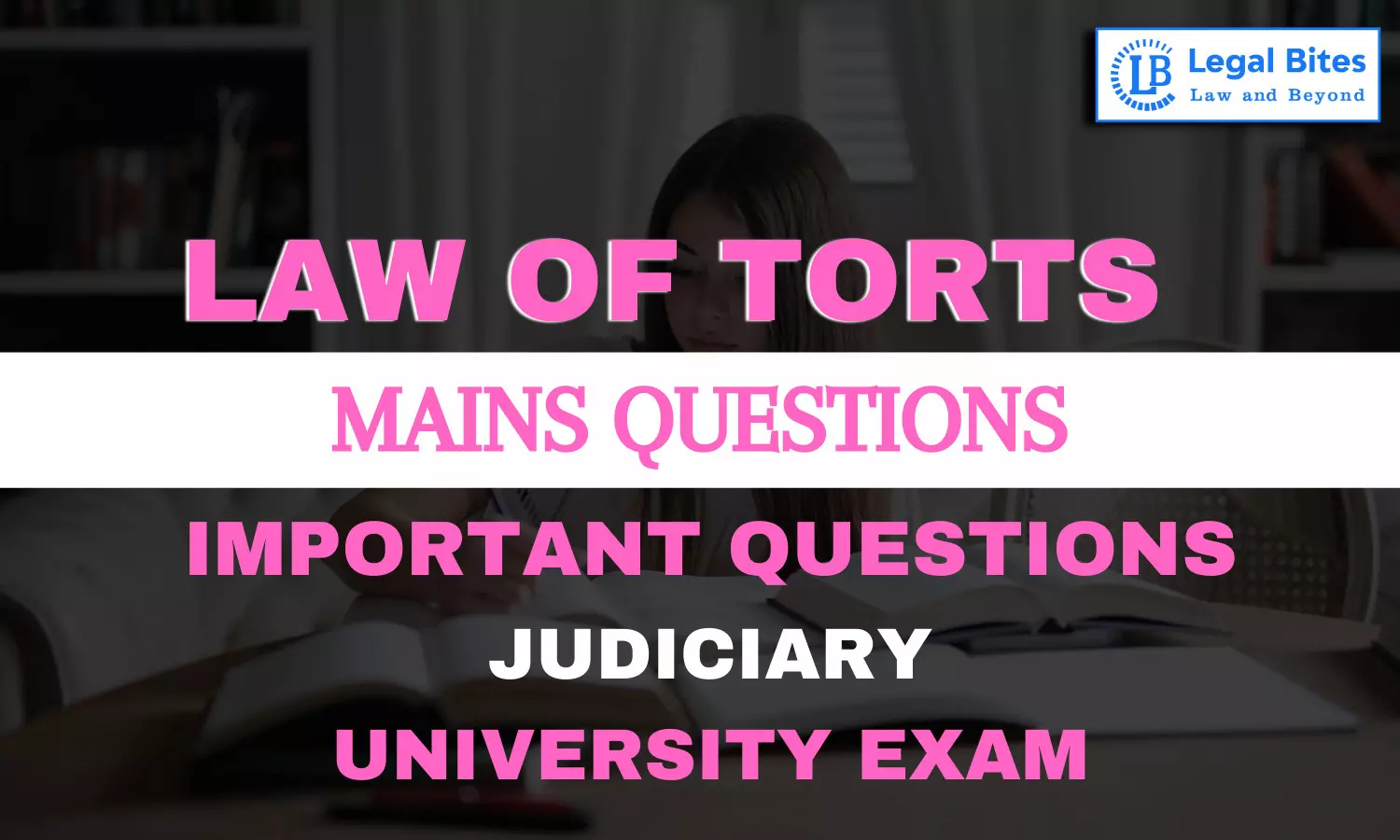Explain with the help of decided cases the rule of 'res ipsa loquitur'.
Find the question and answer of Law of Torts only on Legal Bites.

Question: Explain with the help of decided cases the rule of 'res ipsa loquitur'.Find the question and answer of Law of Torts only on Legal Bites. [Explain with the help of decided cases the rule of 'res ipsa loquitur'.]AnswerRes ipsa loquitur is a Latin term that means "the thing speaks for itself." In the context of tort law, it is a legal doctrine that allows a plaintiff to establish a prima facie case of negligence by demonstrating that the injury or harm suffered was caused by an...
Question: Explain with the help of decided cases the rule of 'res ipsa loquitur'.
Find the question and answer of Law of Torts only on Legal Bites. [Explain with the help of decided cases the rule of 'res ipsa loquitur'.]
Answer
Res ipsa loquitur is a Latin term that means "the thing speaks for itself." In the context of tort law, it is a legal doctrine that allows a plaintiff to establish a prima facie case of negligence by demonstrating that the injury or harm suffered was caused by an event that would not have occurred in the absence of negligence. The doctrine operates as a form of circumstantial evidence and is often used when there is no direct evidence of how the harm or injury occurred.
The rule of res ipsa loquitur has been applied in numerous landmark cases to establish liability and facilitate the award of damages to the injured party. Some of these cases are discussed below:
Scott v. London and St. Katherine Docks Co., (1865) 3 H&C 596, in this case, a barrel of flour fell from a warehouse owned by the defendant onto the plaintiff, causing injury. The court held that the accident was of a type that would not have occurred in the absence of negligence and applied the rule of res ipsa loquitur to infer that the defendant was negligent in the storage and management of the warehouse.
Byrne v. Boadle, 159 Eng. Rep. 299 (1863), in this case, the plaintiff was walking past a building owned by the defendant when a barrel of flour fell out of the window and struck him. The court held that the rule of res ipsa loquitur applied and inferred that the accident was caused by the defendant's negligence, as it was unlikely that the barrel would have fallen out of the window in the absence of negligence.
Mahon v. Osborne, (1939) 1 All ER 535, in this case, the plaintiff was injured when a car owned by the defendant suddenly lurched forward while waiting in traffic. The court held that the doctrine of res ipsa loquitur applied, as it was a type of accident that would not have occurred in the absence of negligence. The court inferred that the defendant had failed to maintain the car properly and that this was the cause of the accident.
Ybarra v. Spangard, (1944) 25 Cal. 2d 486, in this case, the plaintiff underwent surgery and suffered injuries as a result. He was not sure which of the medical personnel had caused the injury, so he sued all of them. The court held that the doctrine of res ipsa loquitur applied, as it was clear that the plaintiff had suffered an injury during the surgery, and that the injury was of a type that would not have occurred in the absence of negligence. The court held that the defendants were jointly and severally liable for the injury and that the plaintiff was entitled to recover damages from any or all of them.
These cases illustrate the application of the rule of res ipsa loquitur in establishing liability for negligence. The doctrine operates as a form of circumstantial evidence and can be used to establish a prima facie case of negligence when direct evidence is not available. The rule is often applied in cases where the accident or injury is of a type that would not have occurred in the absence of negligence, and the court can infer that the defendant was negligent based on the circumstances of the case.

Mayank Shekhar
Mayank is an alumnus of the prestigious Faculty of Law, Delhi University. Under his leadership, Legal Bites has been researching and developing resources through blogging, educational resources, competitions, and seminars.
